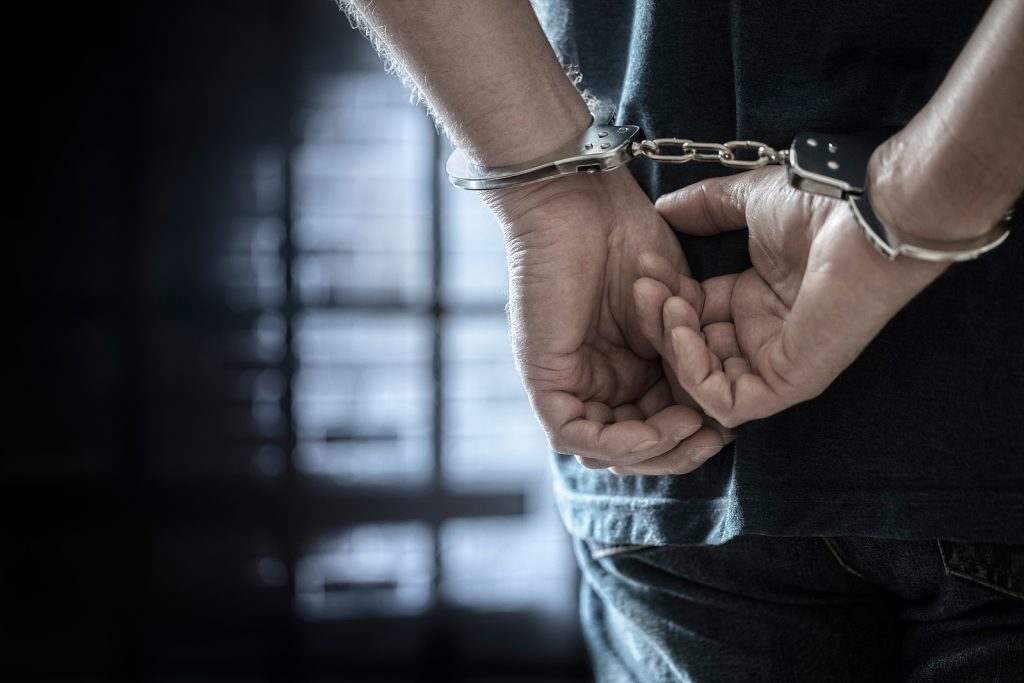The justice system in Colorado takes domestic violence quite seriously. Colorado law allows victims of domestic violence to seek a “protection order.” People commonly call these orders “restraining orders.” If you need to obtain a protection order, or if you need to challenge a protection order that has been issued against you, contact a Colorado Springs domestic violence attorney as quickly as possible.
In Colorado, what are the different kinds of protection orders? What steps do you have to take to obtain a protection order, and what will it accomplish? Can a protection order be successfully challenged in court?
If you’ll keep reading this brief discussion of protection orders in Colorado, you will find some answers, but if you need a protection order, or if a protection order is issued against you, you should also be advised and represented by a Colorado Springs domestic violence lawyer.
How Widespread is Domestic Violence?
Every year in this nation, over 300,000 women go to emergency rooms or doctors for medical care after incidents of domestic violence. More than one thousand women are killed each year in the United States in these incidents.

Our nation spends more than $8 billion annually on mental health and medical services that are domestic violence-related. That figure does not even include the legal cost of domestic violence incidents or the tragic impact that domestic violence incidents have on children.
How Are Civil Protection Orders and Mandatory Protection Orders Different?
In the State of Colorado, emergency, temporary and permanent protection orders are civil protection orders that civil courts may issue to abuse victims and crime victims who seek protection from an abuser. A mandatory protection order is an order that a criminal court automatically imposes on a defendant during a criminal case, whether or not the victim is seeking the order.
In everyday practice, lawyers, judges, and police officers use these terms “protection order” and “restraining order” casually and interchangeably to refer to both civil and mandatory protection orders. Both types of order accomplish the same goal – to restrain an abuser or assailant from contacting an alleged crime victim or abuse victim.
How Can Abuse Victims Obtain Temporary Protection Orders?
In Colorado, temporary protection orders are available to abuse victims to prevent:
- domestic abuse
- physical assault or bodily harm
- sexual assault or abuse
- stalking
- emotional abuse
Although you can do it on your own, you should have a lawyer’s help and advice when you seek a temporary protection order (TPO) from the court. A court will issue the order if it believes a victim is in imminent danger. Once the person who is named in the order receives it, he or she may not go near the protected person while the order is in effect.
What Do Protection Orders Cost? Can You Get One on Weekends or Holidays?
A temporary protection order may be issued in Colorado for no cost if the person seeking the order is a victim of stalking, rape, unlawful sexual contact, domestic abuse, or cannot afford the fee. Otherwise, the filing fee for temporary protection orders is $85.
Without going to court, you can obtain an emergency protection order (EPO) from Colorado police agencies that is good until the end of the next business day for the court. These orders can be approved in writing or verbally by an after-hours duty judge. EPOs may be issued on evenings, weekends, or holidays, or if the police believe a victim is in immediate danger of domestic or sexual abuse. However, if you want an order of protection to continue, you must file for a temporary protection order the day the court opens back up.
How Do You Obtain a Permanent Protection Order?
A Colorado Springs domestic violence attorney can help you convert an EPO to a TPO and can also help you convert a temporary protection order to a permanent protection order (PPO). When it issues a TPO, the court will schedule a hearing to decide if a PPO should be issued.
At that hearing, both the person who sought the temporary protection order and the person named by the TPO may present evidence and call witnesses. If the court believes the protection order is justified, it can make the order permanent.

A judge may also extend the temporary protection order for another 120 days and schedule a later hearing to decide at that time if a permanent protection order should be issued.
How Do Civil Protection Orders Differ From Criminal Mandatory Protection Orders?
In Colorado, civil “protection orders” are sought by abuse victims and issued by the state’s civil courts. However, a criminal protection order is issued by a Colorado criminal court as the result of particular criminal charges – whether or not a victim requests a protection order.
Criminal “protection orders” are issued automatically by criminal courts when certain crimes have been charged. These orders prohibit defendants from contacting their alleged crime victims. A criminal mandatory protection order usually stays in effect until the criminal proceeding is concluded.
Can You Challenge a Civil Protection Order?
A permanent protection order can appear in a background check. Even if you have never been convicted of any crime, if an employer or landlord sees a protection order on your record, you could be denied housing or employment.
If you are named in a temporary civil protection order, a Colorado domestic violence lawyer can work to prevent the temporary protection order from becoming permanent. If a permanent order is issued, in most cases, you will have to wait two years to ask the court to revise or rescind it.
The penalties for the violation of a protection order depend on the specific type of order and the individual’s previous criminal record. Depending on the details of the charge, the violation of a protection order in Colorado is a Class 1 or Class 2 misdemeanor.
Can You Lose Your Right to Own Firearms?
A permanent protection order in Colorado can also prevent you from owning or possessing a firearm. If the order is issued due to an act or acts of domestic violence, and if the victim was or is an “intimate partner,” you may lose your firearm rights.

The loss of your right to own or possess a firearm stays in effect for the duration of the protection order. If a permanent protection order is never revised or rescinded, the loss of the right to own or possess a firearm is permanent.
Why is a Protection Order Issued?
If there are allegations of stalking, domestic violence, assault, sexual assault, or harassment against you, a court may issue a restraining or protection order against you. The order protects your accusers and the broader public from danger. It mandates that you remain a specific distance away from a particular place, person, or family.
A protection order may have a “no-contact” clause that inhibits you from contacting specific people via email, phone, letter, or delivery. Sadly, a protection order can have life-long severe consequences, portraying you as a dangerous person to the public. You should consider hiring a protection order lawyer from a Colorado criminal defense law firm.
A skilled attorney can help you challenge the restraining order to protect your name, defend your reputation, and give you a chance to start afresh. Since they understand the law, they can help you navigate the complex legal jargon and issues associated with restraining orders. Here are the reasons to consider hiring a protection order lawyer:
A Restraining Order Could Carry Both Criminal Penalties
A restraining order may be issued against you even when you know that you’re not guilty of the charges you face. In the heat of the moment, you may unintentionally violate the order.
- If a protection order was issued in a criminal case, a violation of the order is a Class 1 misdemeanor punishable by up to 365 days in jail.
- It is a Class 2 misdemeanor if you violate a civil protection order and is punishable by up to 120 days in jail.

These penalties can have a life-long impact on your life and career. An experienced Colorado Springs protection order lawyer can fight to have these penalties reduced, provide legal counsel, and advise you on the right thing to say.
Improve the Likelihood of a Favorable Outcome
You must know what to say before a judge if you plan to testify against the petitioner. With an aggressive Colorado Springs protection order attorney by your side, you have better chances of proving your innocence. The lawyer will explain the depth of the allegations against you and explain the legal process so that you understand your risks and options.
The lawyer can help you build a strong defense by adequately putting your story at the forefront of the case, drastically reducing the consequences. The penalties can be steep even if you’re facing domestic violence allegations for the first time. You should hire a skilled protection order attorney in Colorado Springs to defend you.
Your lawyer will know the type of evidence necessary to prove your innocence and can demand discovery to aid your case. They can seek to obtain everything from the alleged victim’s medical reports to body-cam footage to determine the validity of the evidence against you. They can also request further investigations if the evidence has questionable loopholes.
Protect Your Children from the Consequences of a Protection Order
If children are involved in the case, you want to shield them against the harmful effects, and an aggressive Colorado Springs protection lawyer can help you achieve that. An experienced lawyer can help resolve your case faster so that it doesn’t prevent you from seeing your children for a long time.

The legal expert is in a position to speed up the process while fighting to achieve a favorable outcome to help you get your life back on track. Their defense strategy can help you overcome any false allegations against you.
An Attorney Has Experience and Knowledge in Court Procedures
When facing domestic abuse charges, you must make several court appearances. The process can be confusing if you’re not well-versed in how courts work. Criminal defense lawyers in Colorado know all the steps involved. They can answer your questions and provide legal guidance on conducting yourself and presenting your case before the judge.
An Experienced Criminal Defense Lawyer Helping You Challenge a Protection Order
Being accused of stalking, abuse, domestic violence or other allegations can be devestating, and the court may issue a restraining order against you. You must defend yourself against the accusations and challenge the protection order, especially if it keeps you from seeing or interacting with your children. It can be complex to challenge the order, but a skilled protection order lawyer can help.

We have dedicated protection order attorneys in Colorado Springs to help you fight against the allegations. While a protection order is not proof of wrongdoing, it can damage your reputation and adversely affect your future, so don’t be quiet about it. Call Joyner Law at (719) 749-3343 to schedule a FREE consultation.
What Else Should You Know About Protection Orders?
If you are the subject of a protection order, or if you are charged with a crime of domestic or sexual violence in Colorado, you must be represented by a defense attorney who can cut through the acrimony, uncover the facts, and fight effectively for justice on your behalf.
If you are a victim of sexual or domestic abuse or violence, you also need an advocate, a domestic violence attorney who will fight aggressively to protect you from further abuse or violence and to win the justice you need.
Whether you are seeking to obtain a protection order or you are the subject of a protection order, you must have reliable legal advice – as quickly as possible – from a Colorado Springs domestic violence lawyer.









